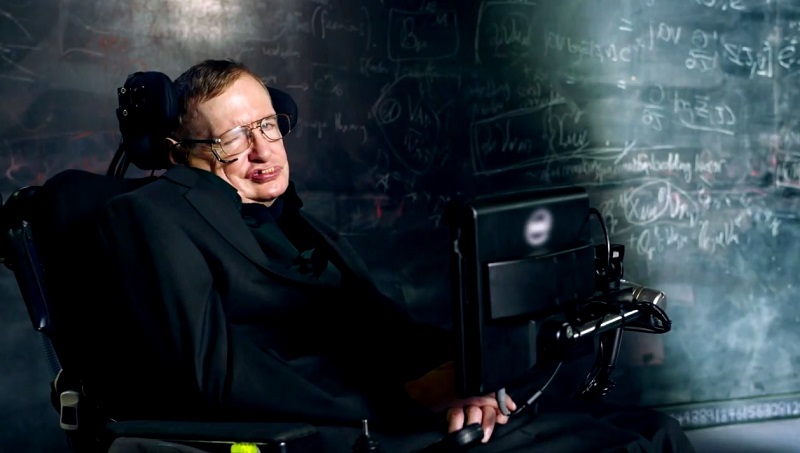Stephen Hawking and 'Theory of Everything' Actor Tout NASA in New Videos

The life of famed astrophysicist Stephen Hawking will launch onto the big screen next week, and the actor that portrays the scientist the new film is touting NASA's legacy of space science discoveries in a new video.
NASA recruited actor Eddie Redmayne, who portrays Hawking in the new biopic "The Theory of Everything," to make a short video honoring Hawking's contributions to science. Set for a Nov. 7 release, "The Theory of Everything" tells the story of Hawking's incredible journey to become one of the greatest cosmologists of all time, despite suffering from a motor neuron disease that has left him paralyzed.
"We've all marveled at the mysteries beyond our planet," said Redmayne in the short. "But with NASA's cutting edge technology, we're discovering the inner workings of our unvierse." [Watch Eddie Redmayne's NASA Public Service Announcement]
NASA scientists are currently testing some of Hawking's theories with instruments like the Hubble Space telescope, the Chandra X-ray telescope, and the upcoming James Webb Space Telescope, which is expected to launch in 2018 as Hubble's successor.
NASA also featured two videos from Arrow Media, producers of the PBS miniseries "Stephen Hawking's Universe." The videos showcase Hawking's views on space exploration and the need for humanity to become a multi-planet species.
"I fear for our future," Hawking said in one of the NASA videos posted by NASA Monday (Oct. 27). “Our planet Earth is threatened with an ever expanding population, and only finite resources. We need a Plan B."
In recent years, Hawking has used his public pulpit to express the opinion that humans must look beyond Earth for our own survival, but he first made a name for himself with theories about black holes and the early universe.
Get the Space.com Newsletter
Breaking space news, the latest updates on rocket launches, skywatching events and more!
NASA also posted a video of Hawking speaking with NASA astronaut Rick Mastracchio and Japanese astronaut Koichi Wakata during their time on the International Space Station earlier this year. Hawking credits the orbiting outpost with developing space exploration technologies that will be essential if humans are to eventually travel beyond our solar system.
Hawking said he has "no doubt" there will be settlements on the moon within the next 50 years, and he hopes for human inhabitants on Mars within the century.
"If our species is to survive," Hawking tells the astronauts, "it is imperative we voyage out into the blackness of space with a determination to colonize new worlds across the cosmos."
Email Calla Cofield at ccofield@space.com or follow her @callacofield. Follow us @Spacedotcom, Facebook and Google+. Original article on Space.com.
Join our Space Forums to keep talking space on the latest missions, night sky and more! And if you have a news tip, correction or comment, let us know at: community@space.com.

Calla Cofield joined Space.com's crew in October 2014. She enjoys writing about black holes, exploding stars, ripples in space-time, science in comic books, and all the mysteries of the cosmos. Prior to joining Space.com Calla worked as a freelance writer, with her work appearing in APS News, Symmetry magazine, Scientific American, Nature News, Physics World, and others. From 2010 to 2014 she was a producer for The Physics Central Podcast. Previously, Calla worked at the American Museum of Natural History in New York City (hands down the best office building ever) and SLAC National Accelerator Laboratory in California. Calla studied physics at the University of Massachusetts, Amherst and is originally from Sandy, Utah. In 2018, Calla left Space.com to join NASA's Jet Propulsion Laboratory media team where she oversees astronomy, physics, exoplanets and the Cold Atom Lab mission. She has been underground at three of the largest particle accelerators in the world and would really like to know what the heck dark matter is. Contact Calla via: E-Mail – Twitter









